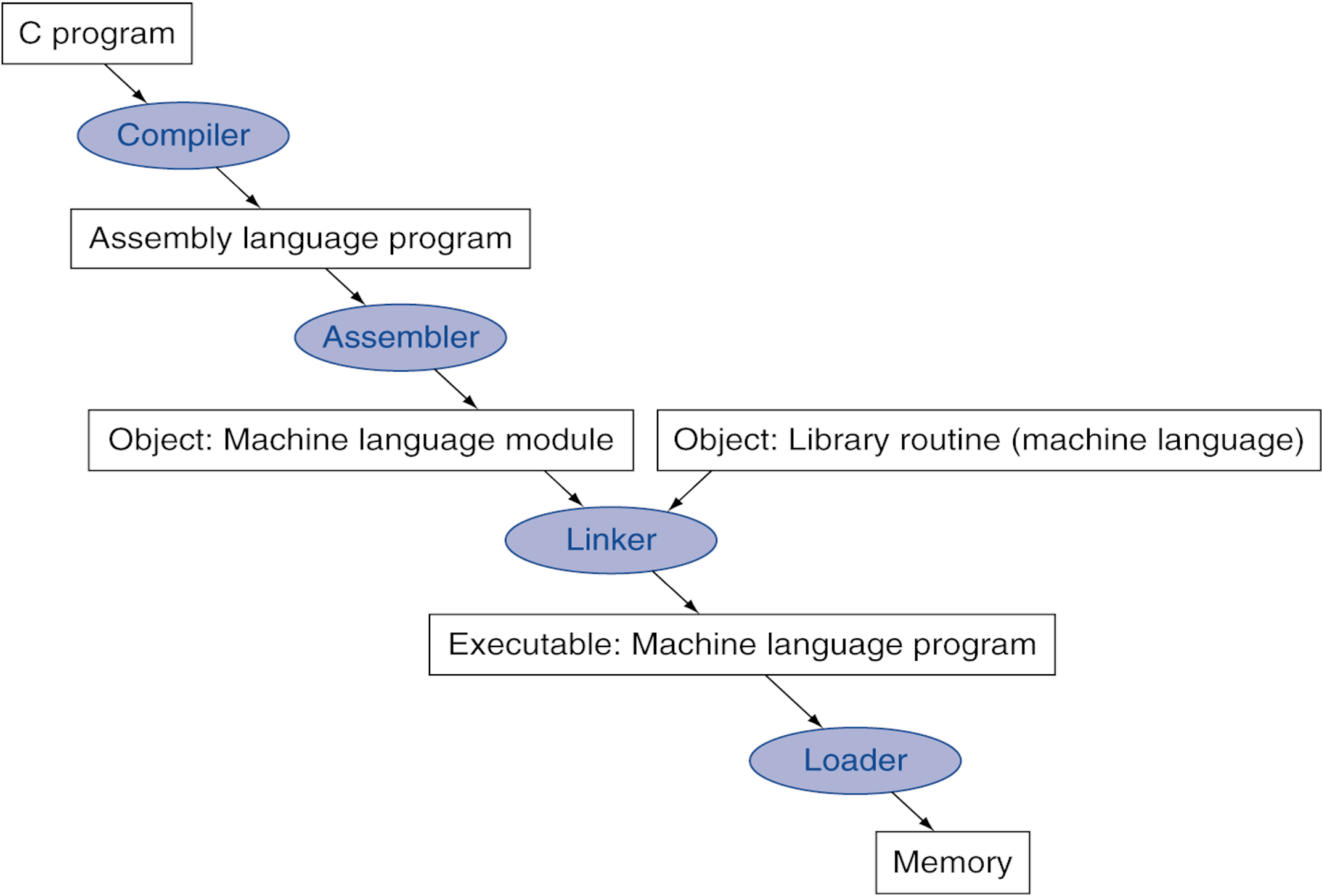Lecture 1-1: Introduction to Programming & C++
從 Source Code 到執行檔
 Credit: Computer Architecture by 黃婷婷老師
Credit: Computer Architecture by 黃婷婷老師
Text Editor
程式碼其實就是一般的純文字檔,為了能夠讓程式設計師有更好的效率撰寫程式,因此寫程式的編輯器會增加其他的功能輔助,例如自動縮排、關鍵字變色、甚至檢查語法錯誤等。
常見的程式編輯器有 Notepad++ 、 Atom 、 VS Code 等。
Compiler
是程式語言的核心工具,用來將你寫的 C/C++ 程式碼變成讓電腦能夠執行的指令。 此外還負責指令的最佳化,讓執行效率提升。
Linker
是用來將編譯好的指令連結成電腦能夠執行的執行檔。因為除了我們自己寫的程式碼之外,無可避免一定會用到許多已經編譯好的指令—— Library (函式庫)。
在現實的情況下,不可能每一東西都要靠自己創造,所以絕大多數的時候我們都會使用內建的或別人寫好的函式庫,來達到自己想要的功能。
Linker 就是用來把我們的程式碼和需要的函式庫裡的程式碼連結在一起,形成單一的可執行檔。
在 Windows 裡,執行的的副檔名為 .exe,macOS/Linux 則是給予執行權限即可執行。
Loader
是用來將執行檔載入給電腦,並實際讓電腦執行你的執行檔。
可以想像是在桌面上點兩下 .exe 檔案, Loader 概念與這個類似。
程式執行
所有的程式都是從指令列執行。 現在常見的圖形介面程式都是從指令列程式擴充而來的。
例如在桌面上點兩下 a.exe 檔案其實是告訴系統說 “請執行 a.exe”,系統會透過 Loader 將 a.exe 載入並且執行。
這時僅有指令列,如果要顯示圖形化介面, a.exe 需要加入其他函式庫告訴系統 “a.exe 有圖形化介面,內容分別是...”。
$ firefox
.......
.......
^C
$
C++ 語言架構
// import std::cout & std::endl
#include <iostream>
/*
start of define main function
void: no input arguments
int: return value in int type
*/
int main(void){
// print "Hello world!" on the terminal
std::cout << "Hello world!" << std::endl;
// return execute status back to the system
// `0` means the program executed successfully
return 0;
// end of define main function
}
$ ./a.out
Hello world!
$
#include <iostream>
int main(void){} & return 0;
std::cout & <<
std::endl
return 0;
Reference: